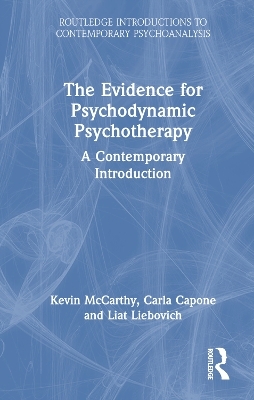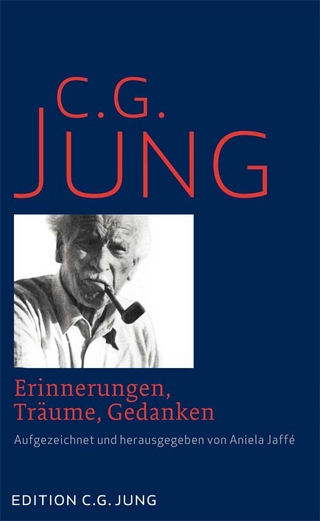
The Evidence for Psychodynamic Psychotherapy
Routledge (Verlag)
978-1-032-34642-7 (ISBN)
- Noch nicht erschienen (ca. April 2025)
- Versandkostenfrei innerhalb Deutschlands
- Auch auf Rechnung
- Verfügbarkeit in der Filiale vor Ort prüfen
- Artikel merken
This book delivers a concise yet comprehensive introduction to the evidence for psychodynamic psychotherapy through explanations of research organized around therapy processes relevant to practicing clinicians and informed researchers.
Each chapter presents an event within dynamic therapy, from interpretation to termination, along with a narrative to help readers understand the why and the how of the process. Written in accessible and engaging language, each short chapter is a synthesis of findings in each topic area, going beyond subjects interesting only to researchers to aspects of practice relevant to therapists of all schools of thought.
The Evidence for Psychodynamic Psychotherapy is written for therapists to pick up and put down between clients, for mental health researchers to quickly find support for a point they wish to make, and for educators to assign brief readings to bolster students’ confidence in dynamic therapy.
Kevin McCarthy is an Associate Professor in the Department of Professional Psychology at Chestnut Hill College, Clinical Associate Professor of Psychology in Psychiatry, and Director of the Residency Psychotherapy Curriculum in the Department of Psychiatry at the University of Pennsylvania, USA. Carla Capone is a clinical psychology PsyD student at Chestnut Hill College, Philadelphia, USA. Liat Leibovich, PhD, is a clinical psychologist and licensed supervisor in psychotherapy and psychodiagnosis working at Ahava children's home, in private practice, and as a lecturer at the Mifrasim Institute and Haifa University, Israel.
Part 1: Foundations 1. Defining Psychodynamic Therapy 2. Scientific Philosophies and Psychodynamic Therapy 3. Outcomes in Psychodynamic Therapy Part 2: Therapeutic Relationship: Evidence in Psychodynamic Pychotherapy: A Contemporary Introduction 4. Transference in Psychodynamic Psychotherapy 5. Countertransference in Psychodynamic Psychotherapy 6. Therapeutic Alliance in Psychodynamic Psychotherapy 7. Alliance Rupture and Repair in Psychodynamic Psychotherapy 8. Real Relationship in Psychodynamic Psychotherapy Part 3: Interventions: Evidence in Psychodynamic Pychotherapy: A Contemporary Introduction 9. Supportive Techniques in Psychodynamic Psychotherapy 10. Expressive Techniques in Psychodynamic Psychotherapy Part 4: Time: Evidence in Psychodynamic Pychotherapy: A Contemporary Introduction 11. Socialization in Psychodynamic Psychotherapy 12. Working Through in Psychodynamic Psychotherapy 13. Termination in Psychodynamic Psychotherapy 14. Time-Limited Psychodynamic Psychotherapy Part 5: Mechanisms: Evidence in Psychodynamic Pychotherapy: A Contemporary Introduction 15. Insight in Psychodynamic Psychotherapy 16. Defenses in Psychodynamic Psychotherapy 17. Attachment in Psychodynamic Psychotherapy 18. Quality of Object Relations in Psychodynamic Psychotherapy 19. Mentalization in Psychodynamic Psychotherapy 20. Brain Changes in Psychodynamic Psychotherapy Part 6: Adaptations: Evidence in Psychodynamic Pychotherapy: A Contemporary Introduction 21. Children and Adolescents in Psychodynamic Psychotherapy 22. Indentity Diversity in Psychodynamic Psychotherapy
| Erscheint lt. Verlag | 21.4.2025 |
|---|---|
| Reihe/Serie | Routledge Introductions to Contemporary Psychoanalysis |
| Zusatzinfo | 22 Tables, black and white |
| Verlagsort | London |
| Sprache | englisch |
| Maße | 129 x 198 mm |
| Gewicht | 453 g |
| Themenwelt | Geisteswissenschaften ► Psychologie ► Psychoanalyse / Tiefenpsychologie |
| Medizin / Pharmazie ► Medizinische Fachgebiete ► Psychiatrie / Psychotherapie | |
| ISBN-10 | 1-032-34642-6 / 1032346426 |
| ISBN-13 | 978-1-032-34642-7 / 9781032346427 |
| Zustand | Neuware |
| Informationen gemäß Produktsicherheitsverordnung (GPSR) | |
| Haben Sie eine Frage zum Produkt? |
aus dem Bereich


